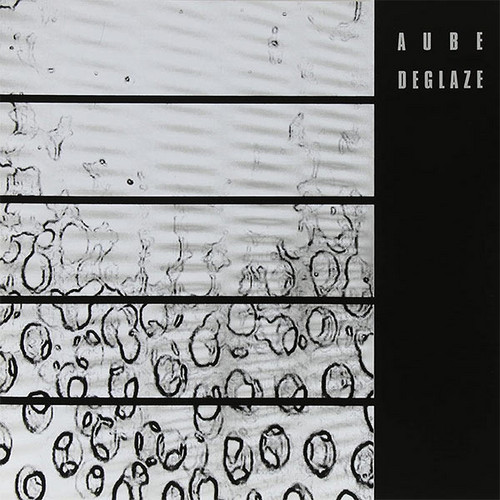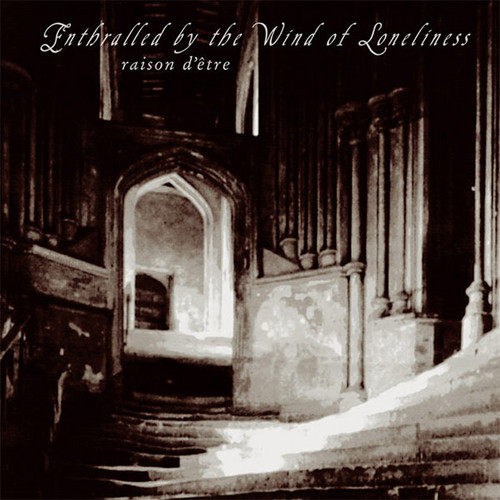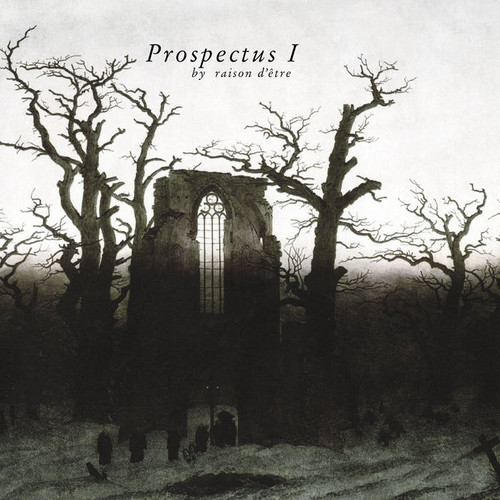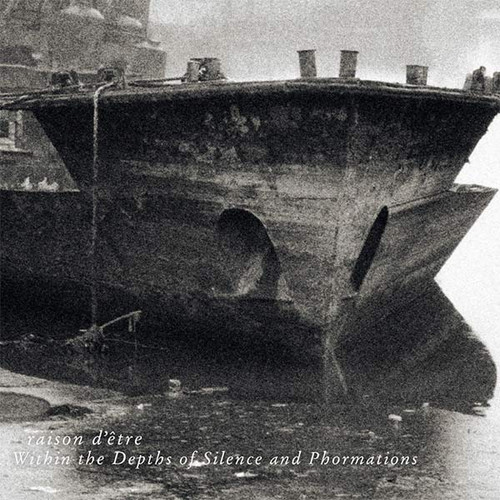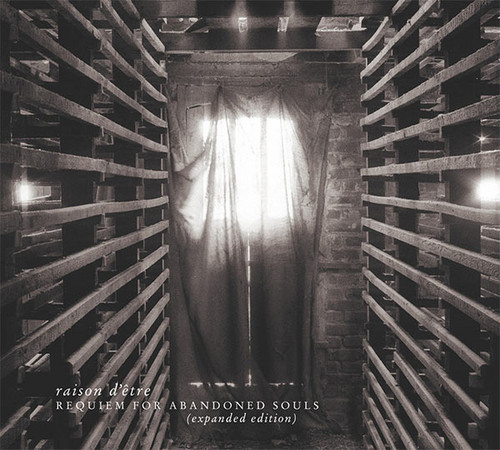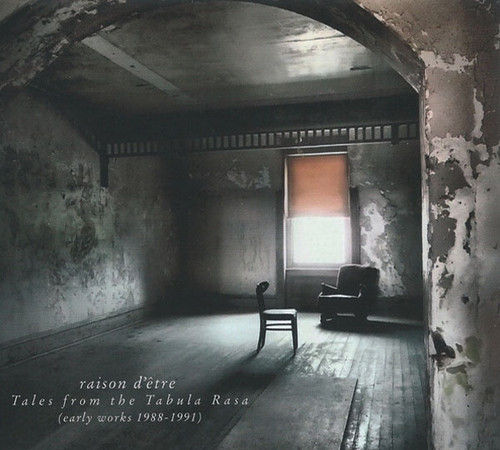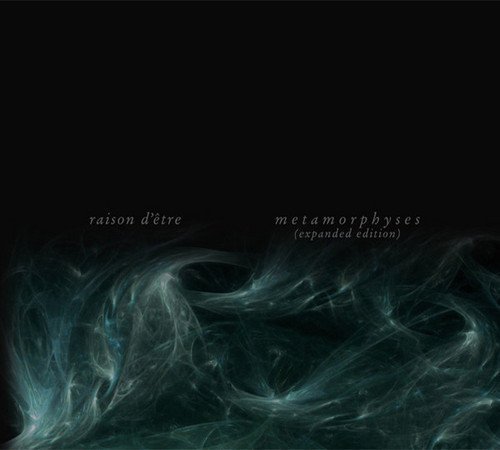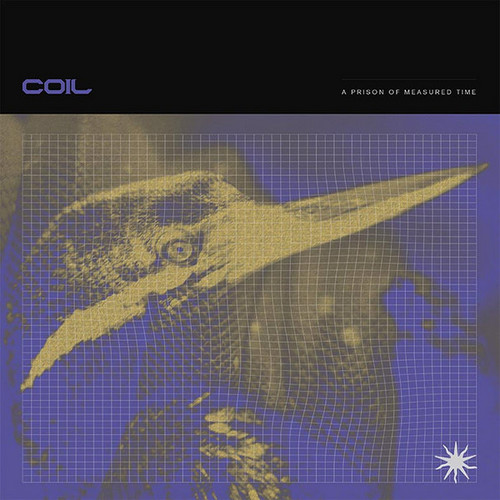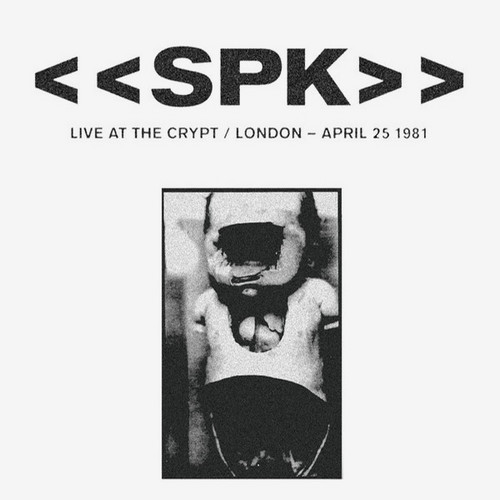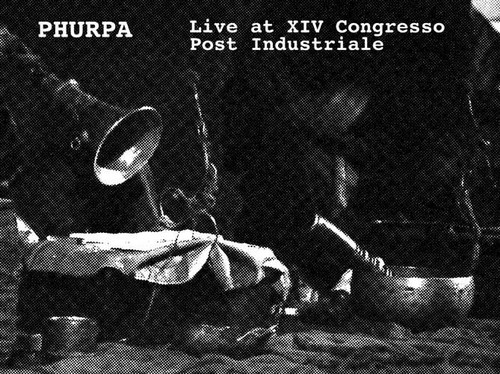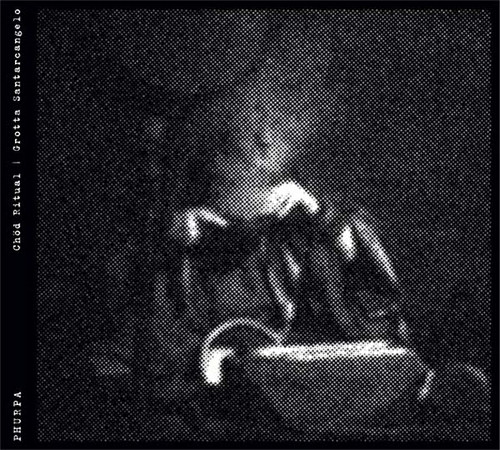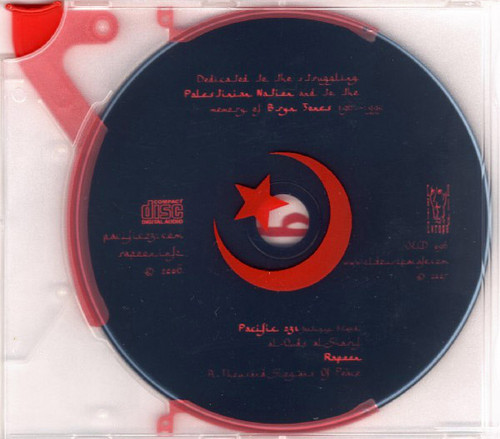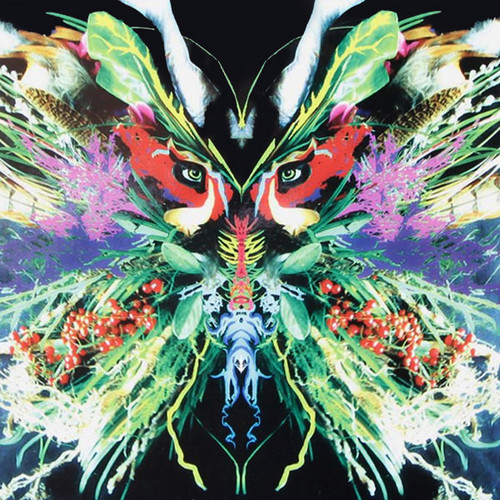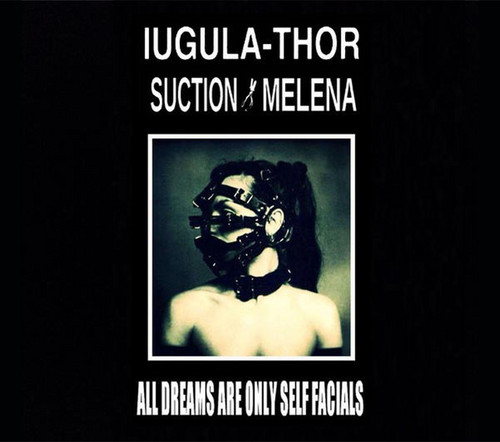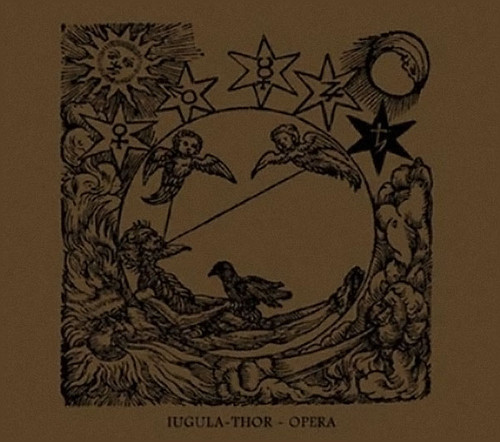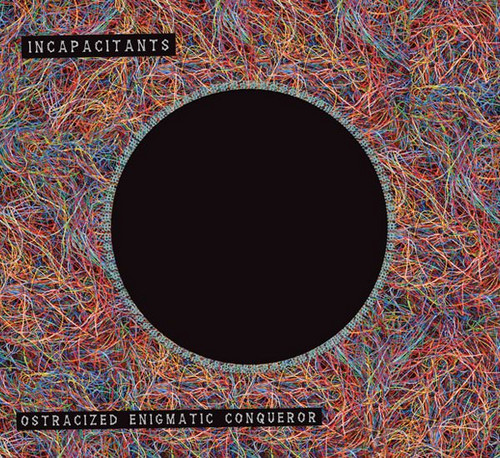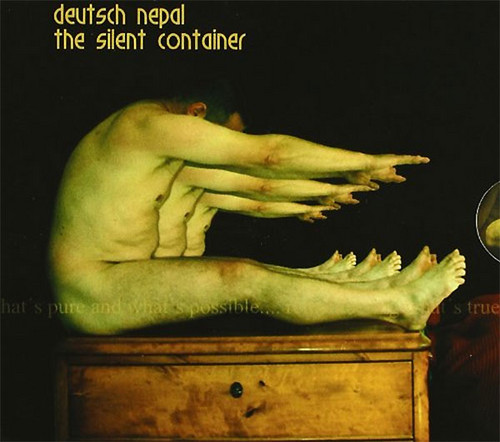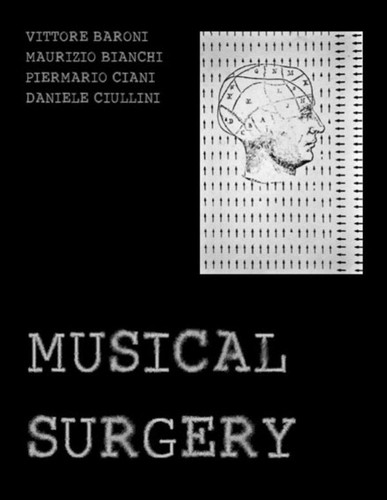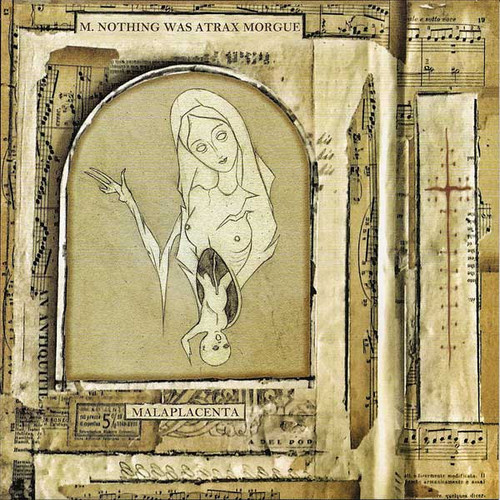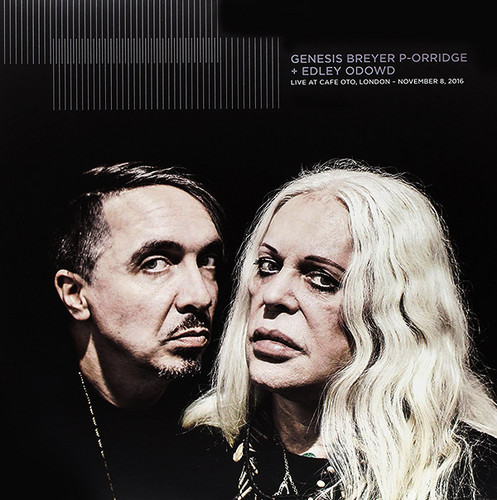Reissues
Deglaze
**2020 stock, reduced price** "Second edition of this great conceptual work by Aube! Dense soundscapes using only glass as sound source. Great industrial sound-sculptures in best Aube tradition. All music and artwork composed, recorded, mixed and designed by Akifumi Nakajima at Studio Mecca, Kyoto, Japan, between November 1996 and August 1997."
Enthralled by the Wind of Loneliness
**300 copies, 2020 stock** "For the first time on vinyl, here comes the re-issue of the second album by Raison d'être, originally released in 1994. For this recording all sounds have been restored and re-recorded from the original source material and all tracks have been carefully remixed to maintain the true feeling and atmosphere of the original album but with current standards for high quality audio. This re-issue also contains 4 bonus tracks not featured on the original album. Re-mastered fo…
Prospectus I
**300 copies, 2020 stock** "For the first time on vinyl, here comes the re-issue of the first album by Raison d'être, originally released in 1993. For this recording all sounds have been restored and re-recorded from the original source material and all tracks have been carefully remixed to maintain the true feeling and atmosphere of the original album but with current standards for high quality audio. This re-issue also contains 4 bonus tracks not featured on the original album.
Within the Depths of Silence and Phormations
**2020 stock** "Within the Depths of Silence and Phormations takes the listener deep below the world of the ordinary into the catacombs of the subconscious, the worlds lying within us so few ever live to explore. This is music meant to stimulate the mind, to inspire one in their explorations of self and solitude. Layers of ethereal atmospheres and the collage of choirs, strings, bells and occasional voices slowly bleed together to create music for society whose spirituality has been rendered imp…
Requiem for Abandoned Souls - Expanded Edition
**2020 stock** "First escorted and abandoned by dark spirits, you wander alone through pitch-blackness, following sounds you'd rather run from then to. But there is no other place to go but down, deeper and further. So turn off your lights and put out your candle when you listen to this powerful release. The title says it all, Requiem for Abandoned Souls is filled with such extreme talent and understanding in the ways of the desolate decay that eats away at the very structure of mankind, that th…
Tales from the Tabula Rasa - Early Works 1988-1991
**2020 stock** "This is not a new album! This does not sound like Raison d'être! This is Raison d'être from another time and world! Tales from the Tabula Rasa presents Raison d'être in its earliest form, when there was no past and only future. This was the birth of Raison d'être and the creative music mind of Peter Andersson. In one way it can be seen as the first particles to the seed that later became the established Raison d'être sound in the 1990's. In the other way it can be seen as the evi…
Metamorphyses - Expanded Edition
**2020 stock** "Transformation is the key to the psyche. It unlocks the hidden domains inside us and finds the paths to inner wisdom. Metamorphyses is a journey into the deep inner self; a drama of the sublime and trancendental transformation of the psyche through a katabasis ritual presented in six transitional stages slowly moving towards completion. Metamorphyses is the key to the psyche."Hypnotic, introspective and yet more difficult. Being the seventh full-lenght album from Raison d’être, M…
A Prison Of Measured Time
An official release of previously unreleased material from Coil, strewn with parts that would eventually come together into ‘Backwards’
Live at The Crypt / London - April 25 1981
**2022 stock** "For the first time on CD, this is an authorised re-edition of the very first album by the band which was released as a tape on Sterile Records (the label run by Nigel Ayers / Nocturnal Emissions) in 1981. Sound on this CD was re-mastered by Nigel Ayers from the original tapes. SPK was one of the very first "Industrial" projects, formed in 1978 by Greame Revell in Sydney - Australia. SPK together with Throbbing Gristle, Cabaret Voltaire and few others, gave birth to what is today …
Live at XIV Congresso Post Industriale
**2020 stock, 300 copies** "On April 14, 2018 Old Europa Cafe and Scenasonica organised the historical OEC label festival in Pordenone, Italy.The venue took place in a medieval deconsecrated Monks church, without doubts the perfect environment for a Phurpa ritual. The live recordings of such ritual was done with high professional skills. Enjoy the full spirit of the ritual music of Bon, the oldest Buddhist tradition from Tibet. Album co-released with Scenasonica."
Chöd Ritual / Grotta Santarcangelo
**2020 stock, 300 copies** On July 7, 2017, Phurpa performed a Chöd / Chod live ritual in Santarcangelo, Italy. The ritual was held inside a cave (grotta in Italian). Chöd / Chod is an ancient practice of cutting through tensions, fears, and obstacles in our life. In Chöd / Chod, we visualize making an offering of our body, which is transformed into whatever is wanted by all beings in all realms. In this vast offering we create and cultivate a flow with everything around us and are in contact wi…
Palestine
*2022 stock, reduced price* "Palestine is a face-to-face in memoriam between Pacific 231 and Rapoon to the late Bryn Jones 1961-1999 a.k.a. Muslimgauze. The production also supports the justified struggle for a truly free Palestinian nation, a key issue for a middle-east liberated from foreign interference. Music was the modus operandi Muslimgauze wanted to carry the message and music is the medium we want to continue to convey the legacy. This regular edition is in-fact also a special edition d…
Hermerzaphrodites
An unusual Merzbow double CD album, in lovely (digipak) packaging! Two very different CDs bounded in one unique release. While on one disc the sounds are more "ambient style", with a free piano, many field recordings, far and rumbling rhythms and noises (The Piano Lento Ma Non Troppo Madness), the other disc's sounds are diving deep into "poly-rhythmics", continously beating and popping plus additional sequencing and 'exploding' sounds (The Pop-Corn Psychedelia). The soundtrack for a new psyched…
All Dreams Are Only Self Facials
**2020 stock, 300 copies** "Collaborative release by a dangerous Italian friends trio. Iugula-Thor is the Italian Industrial / Power-Electronic monster born from the minds of Andrea Chiaravalli and Paolo Bandera (Sigillum S / Sshe Retina Stimulants) in the early '90s. Suction Melena is the other harsh face of Giovanni Mori (Le Cose Bianche), the new man in the Italian Harsh Power-Electronics. This is sharp and uncompromising Hard Power-Electronics in pure Italian-Style. Scraping vocals, Analogic…
Opera
**2020 stock** "Old Europa Cafe, Elettronica Radicale Edizioni and Lake Shark Harsh Noise are glad to announce the 2015 reiussue of Iugula-Thor’s classic Opera. Originally published on tape in 1996 by Old Europa Cafe, Opera was a notable personal piece that blended noise and power electronics by mixing piercing high frequencies, a subtle and threatening vocal presence and classical music, buried under layers of violent harsh noise. Alongside Dead Body Love's classic Low-Fi Power Carnage, Iugula …
Ostracized Enigmatic Conqueror
A corrosive and psychedelic-noise album by this primal duo of the Japanese industrial-noise culture! Three devastating Incapacitants tracks to listen at maximum volume for high hearing damage. Two studio tracks and one live recording.
The Silent Container
Finally here comes the re-edition into digital format of the Silent tape trilogy originally released some years ago on OEC, for long time sold-out and much requested from all Lina's fans. Here you can really hear all Deutsch Nepal's different sounds in a long, accurate and complete work. Those who know Lina's sounds don't need many words to understand that this is for sure, if not the best, one of his very best works ever, a true classic for all Industrial lovers. Everything was re-mastered in h…
Musical Surgery
**2020 stock, limited to 300 numbered copies in A5 sleeve** From the sleeve notes: Mixed on february 1982 at Sound Recycling Terminal in Florence and printed in four audio cassettes only for participants in the experiment. From the archives of the Florentine studio Sound Recycling Terminal comes this singular finding, an experiment in "sound surgery" originally assembled in February 1982 by Daniele Ciullini with audio materials sent by Maurizio Bianchi (M.B.) and the founders of the TRAX multime…
Malaplacenta
**2020 stock, 300 copies** "Two unreleased and exclusive tracks by Atrax Morgue. Those tracks were part of an idea and project elaborated by Muzakiller Foundation in 2007 and are among the last recordings that Marco made shortly before his suicide, and for this reason the project was put aside. Now, with the precious help of Muzakiller and Devis G. (Teatro Satanico / Lunus) who also took care of final mastering, those two little treasures of the best Italian death-Industrial & old school power e…
Live At Cafe Oto
Hand-numbered LP limited to 300 copies - On November 8, 2016, Genesis Breyer P-Orridge and Edley ODowd performed an intimate and dynamic set to a sold-out audience at Cafe OTO in London. These multi-track recordings will be mixed by Psychic TVs Jeff Berner and Edley ODowd and issued as a very limited 12” vinyl edition by Old Europa Cafe. Expect darkness, light and the occasional humor as these two collaborators glide through a set of improvisational words and sound.
